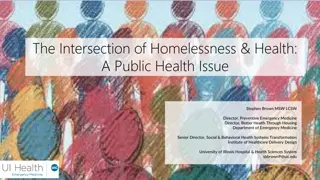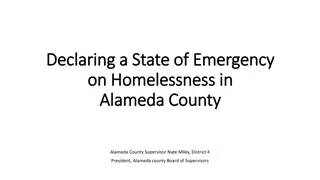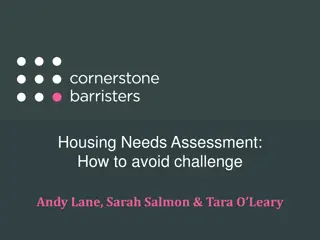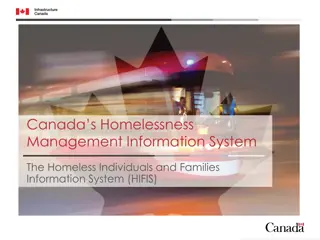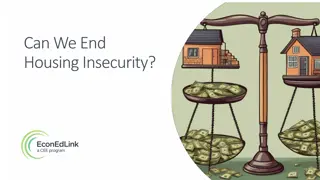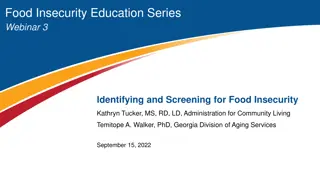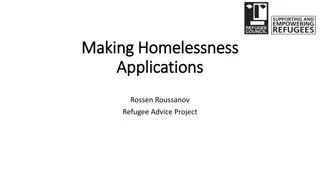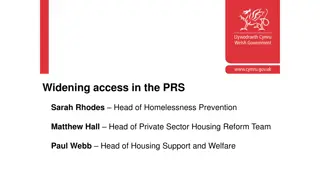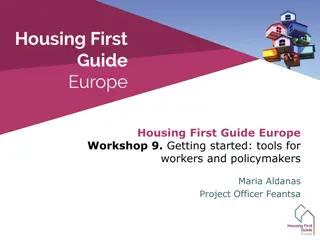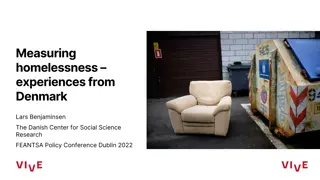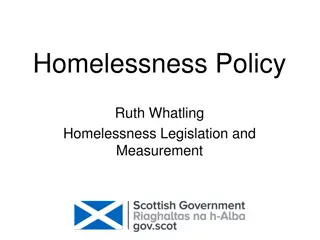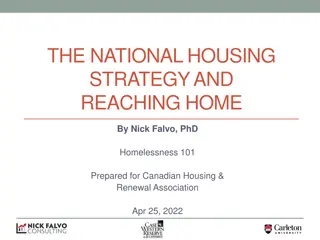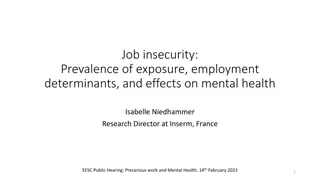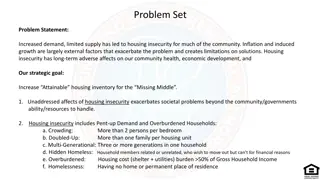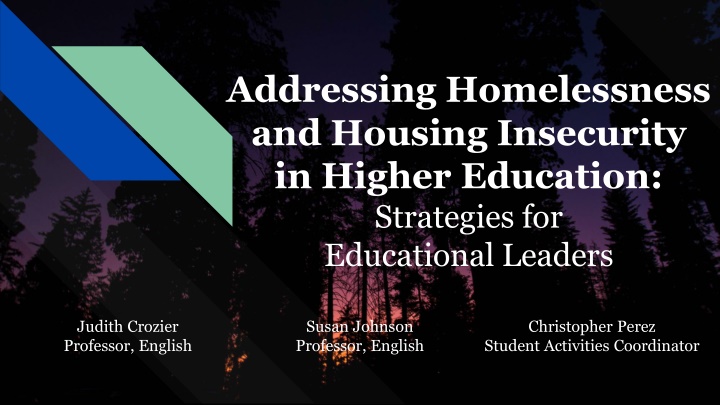
Strategies for Addressing Homelessness and Housing Insecurity in Higher Education
This book provides valuable insights and practical guidance for educational leaders to support students facing barriers in college access, success, and retention due to homelessness and housing insecurity. It offers research-based recommendations, case studies, and tools for evaluating, planning, and sustaining efforts to address these critical issues on campus.
Download Presentation

Please find below an Image/Link to download the presentation.
The content on the website is provided AS IS for your information and personal use only. It may not be sold, licensed, or shared on other websites without obtaining consent from the author. If you encounter any issues during the download, it is possible that the publisher has removed the file from their server.
You are allowed to download the files provided on this website for personal or commercial use, subject to the condition that they are used lawfully. All files are the property of their respective owners.
The content on the website is provided AS IS for your information and personal use only. It may not be sold, licensed, or shared on other websites without obtaining consent from the author.
E N D
Presentation Transcript
Addressing Homelessness and Housing Insecurity in Higher Education: Strategies for Educational Leaders Judith Crozier Professor, English Susan Johnson Professor, English Christopher Perez Student Activities Coordinator
Book Summary: This book helps educational leaders provide support for students who face significant barriers to college access, success, and retention. The authors offer research-based, practical guidance to allow readers to evaluate these issues within their local context, create and implement a plan of action, and sustain those efforts over time. Vignettes based on interviews with students experiencing homelessness and housing insecurity and contributions from practitioners are woven throughout the text to illustrate promising-practice recommendations. Topics include trauma-informed frameworks, policies affecting homelessness and housing insecurity, transitioning students to college, supporting college retention, collaborations and partnerships, and life after college. This practical resource can be used as a professional development tool for student affairs, academic affairs, health and wellness centers, and other campus-based support services. The book features: (1) Guidance for evaluating food and housing insecurity in a local context; (2) Practical ideas for designing and implementing solutions; (3) Useful strategies for building a team and securing resources; and (4) Case studies that include voices of students and higher education practitioners.
Chapter Breakdown Chapter 1-3 (September 18) - Introduction - Housing Insecurity in Higher Education - Social & Political Context
Chapter Breakdown Chapter 4-6 (October 30) - Trauma-Informed and Sensitive Colleges - Localizing Housing Insecurity - Evaluating Housing Insecurity on Your Campus
Chapter Breakdown Chapter 7-9 (November 13) - Implementing Strategies to Improve Student Experiences - Sustaining Efforts Over Time - Looking Forward
Book Club Expectations 1) Calendar Invite 2) Meeting Summary 3) Facilitator/Moderator 4) Action Plan 5) Safe Space 6) Network of Support
Book Club Expectations 1) Strategies to support students 2) Resource List 3) Centralized Location 4) Recommendations to Compton College 5) COVID-19 support 6) Tartarsupport@compton.edu
We judge ourselves by our intentions. And others by their actions. - Stephen R. Covey

